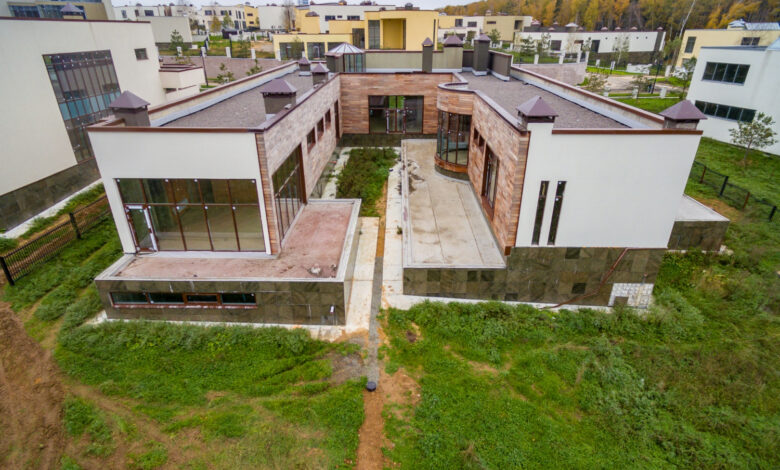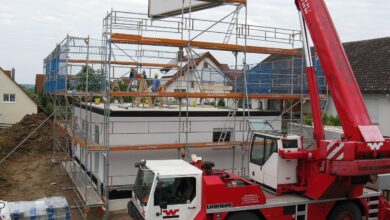Real Estate Surpasses Oil to Become Third-Largest Sector – Report

Preliminary data from the ongoing GDP and CPI rebasing exercise shows that the real estate sector has overtaken oil and gas to become Nigeria’s third-largest economic sector.
The real estate industry now trails behind crop production and trade, which hold the first and second positions, respectively.
Historically, agriculture was Nigeria’s leading sector, contributing over 20% to the nation’s GDP. It encompassed subsectors such as crop production, livestock, forestry, and fishing.
As part of the GDP rebasing process, crop production has been separated from the broader agriculture category, emerging as Nigeria’s second-largest industry. Agriculture, including its remaining subsectors, accounted for 28.65% of the GDP in Q3 2024.
Telecommunications, formerly grouped under the information and communication sector, has now been designated as a standalone sector, ranking as the fourth largest in Nigeria. The information and communication sector contributed 16.35% to the GDP in Q3 2024.
In the same quarter, trade accounted for 14.78% of the GDP.
With the rebased GDP structure, crude petroleum and natural gas, construction, and food, beverages, and tobacco occupy the fifth, sixth, and seventh positions, respectively. Meanwhile, public administration has been entirely displaced from the list of the top seven sectors.
In nominal terms, the real estate services sector grew by 46.52% in Q3 2024, a significant increase of 43.70 percentage points compared to the same period in 2023. However, this growth was lower than that of the preceding quarter.
On a quarter-on-quarter basis, the sector recorded a growth rate of 16.15%. It contributed 5.43% to real GDP in Q3 2024, slightly below the 5.58% recorded in the corresponding quarter of 2023.
Despite declining purchasing power, demand for real estate in Nigeria continues to rise.
While estimates of Nigeria’s housing deficit vary, many real estate experts place the gap at 28 million units, with the nation requiring 700,000 new homes annually to address the shortfall.
According to Statista, Nigeria’s real estate market is projected to reach a value of $2.61 trillion by 2025, reflecting the sector’s immense potential. Among its various segments, residential real estate is expected to dominate, with a projected market volume of $2.25 trillion by 2025.
Real News To Read
Between 2025 and 2029, the real estate market is projected to grow at a compound annual growth rate (CAGR) of 6.91%, reaching a market volume of $3.41 trillion by 2029.
Globally, the United States is expected to lead the sector, with its real estate market projected to achieve a value of $136.6 trillion by 2025.
The real estate market in Nigeria is witnessing a surge in demand for luxury apartments in major cities.
Last year, the National Bureau of Statistics (NBS) began rebasing the country’s GDP and CPI. This effort is aimed at reflecting updated economic conditions and is recommended by the United Nations Statistical Commission every five years.
The previous rebasing in 2014 resulted in an 89% increase in GDP, making Nigeria Africa’s largest economy.
Moses Waniko, the technical assistant to the Statistician-General, recently presented the details of the rebasing exercise at a sensitization workshop organized by the Nigerian Economic Summit Group in collaboration with the NBS. He revealed that the new base year for the provision was 2019, as opposed to the previous base year of 2010.
According to Waniko, the rebasing now includes new areas of the economy, such as the digital economy, activities of modular refineries, pension fund administration, the national health insurance scheme, and mining, among others.
He highlighted that the implications of the rebasing would support economic and development planning, foster growth, and contribute to an increase in the overall size of the economy.
“The real estate market in Nigeria is experiencing a surge in demand for luxury apartments in major cities.”
The NBS, last year, commenced rebasing the country’s GDP and CPI.
This initiative aims to reflect updated economic conditions and is recommended every five years by the United Nations Statistical Commission.
The last rebasing occurred in 2014, leading to a significant GDP increase of 89 percent and positioning Nigeria as Africa’s largest economy.
The technical assistant to the Statistician-General, Moses Waniko, who presented the provisions of the rebasing exercise in a sensitisation workshop organised by the Nigerian Economic Summit Group in collaboration with the NBS recently, said that the base year for new provision was 2019 as against the former’s 2010.
According to him, the rebasing covers new areas of the economy, including the digital economy, activities of modular refineries, pension fund administration, the national health insurance scheme, and mining, among others.
Noting the implications of the rebasing exercise, Uwaniko said it would allow for economic and development planning, growth, and an increase in the size of the economy.
Stay tuned to our website for the latest updates on real estate news, real estate tips, and inspiring stories where realtors share their experiences. You can also earn money by sharing your own story. Don’t forget to leave your comments and join the conversation!




